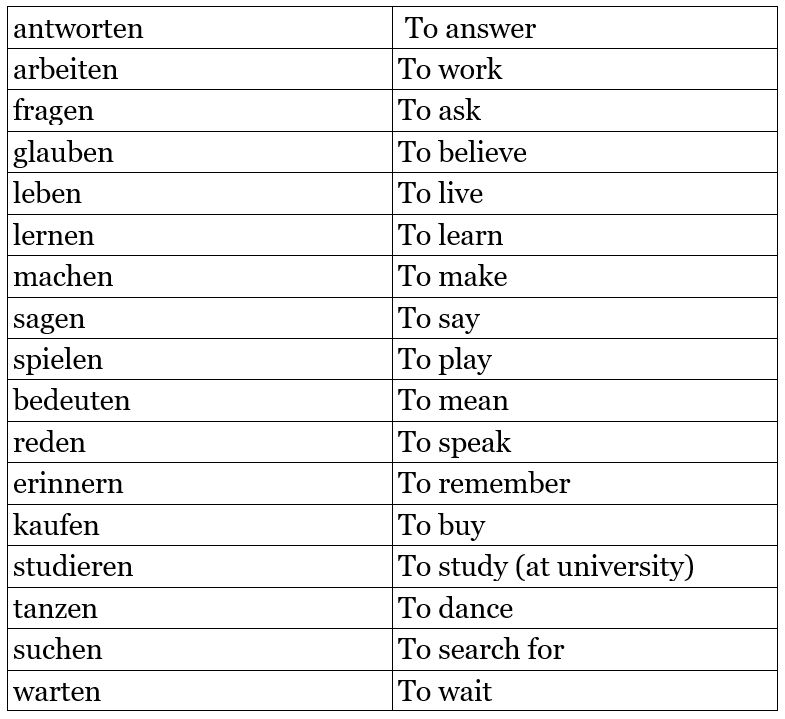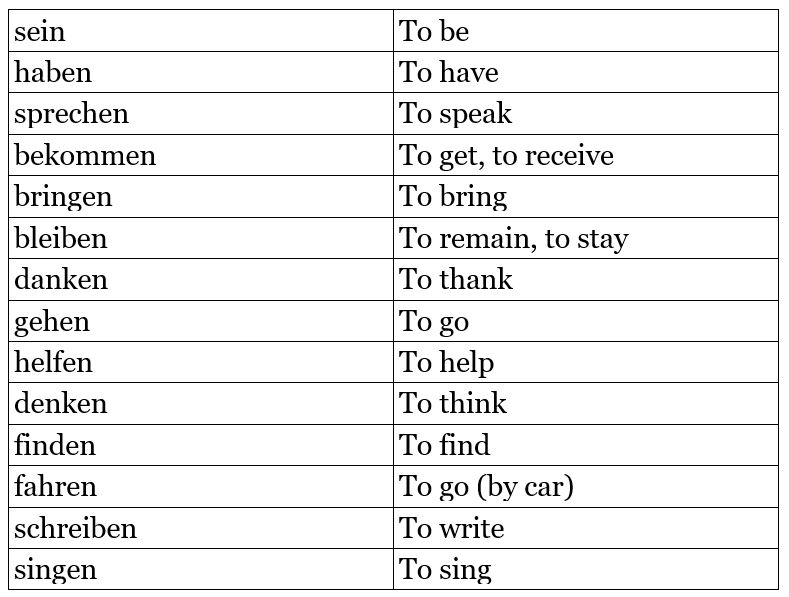Verbs describe what someone or something is doing or what is happening.
The first important thing you have to know when learning German conjugations is that verbs are generally classified as either “weak”, “strong”, “mixed” or “separable”.
Let’s take an in-depth look at these four categories:
Weak verbs
Weak verbs are called like that because, from a morphological standpoint, they’re quite simple: they always show the prefix ge- and the ending -t for the past participle (Perfekt), and -te for the simple past (Präteritum) and the subjunctive form (Subjunktiv II).
For this reason, they are also known as “regular verbs”. You simply can’t go wrong with such a recurring pattern:

“Niemand muss es wissen!”, sagte er.
(“Nobody must know about this!”, he said).
Ich habe ein Fehler gemacht.
(I made a mistake).
Meine Mutter hat zu meinem Geburtstag eine Pizza gekocht.
(My mother cooked a pizza for my birthday).
Strong verbs
Verbs that fall into this category undergo different phonetic changes in their past forms. Because of this, they are known as “irregular verbs” and lack a recognizable pattern:

Gestern gingen wir spazieren.
(We went for a stroll yesterday).
Sie sah ein Fuchs im Garten.
(She saw a fox in the garden).
Mist! Sven hat sich eine Rippe gebrochen!
(Oh, no! Sven broke his ribs!)
Mixed verbs
As the name suggests, mixed verbs are something in between. Their past forms have ge- and -t at the beginning and at the end of the main lexical unit, but they also show vowel changes:

Er rannte täglich im Park.
(He ran/he used to run every day in the park).
Ich dachte an eine andere Frage.
(I was thinking about another question).
Separable verbs
Separable verbs contain a prefix that can give them a brand new meaning:
- ab+sagen = absagen (to cancel)
- an+bieten = anbieten (to offer)
- ab+holen =abholen (to pick up)
But there’s more. In the present tense, separable prefixes are always placed at the end of the sentence, they literally “move”:
Er sagt das Fußballspiel ab.
He cancels the football match)
Tut mir leid, aber ich biete keine technische Unterstutzung an.
(I’m sorry but I don’t offer any technical support).
Mein Vater holt mich um 16 Uhr ab.
(My father picks me up at four pm)

Here’s some of the most common separable prefixes:

There are a few common prefixes that don’t belong to this category, therefore they should never be treated as separable particles:

Most Common German Verbs
Regular Verbs

Irregular Verbs

To know more about German nouns, click HERE.
